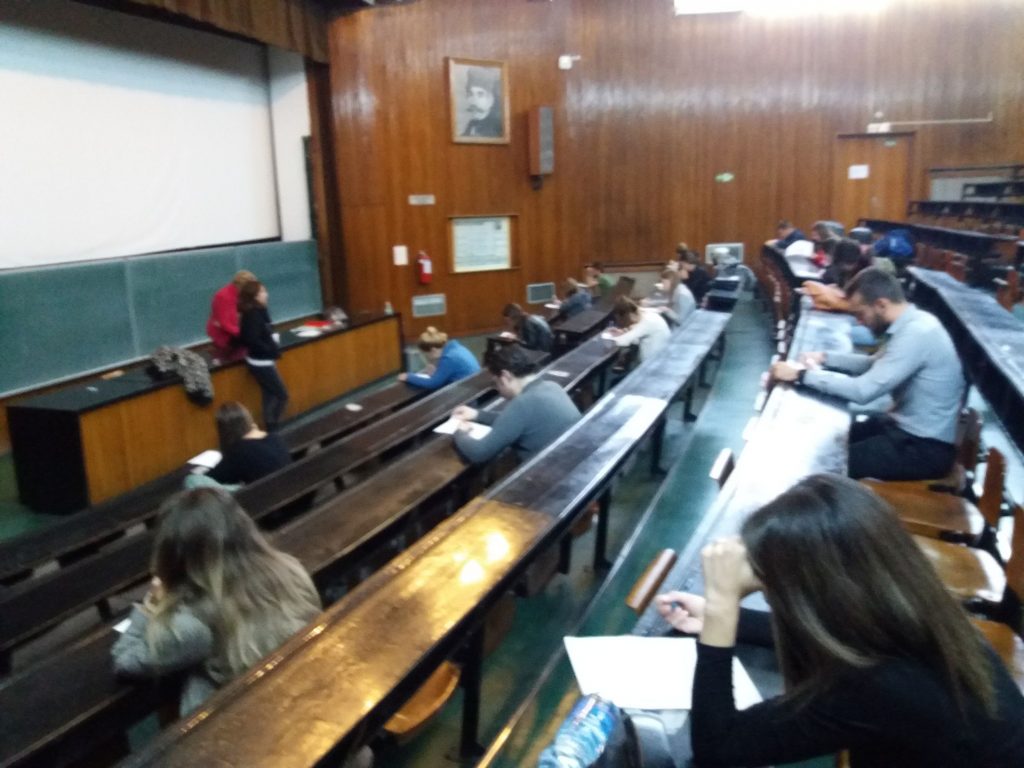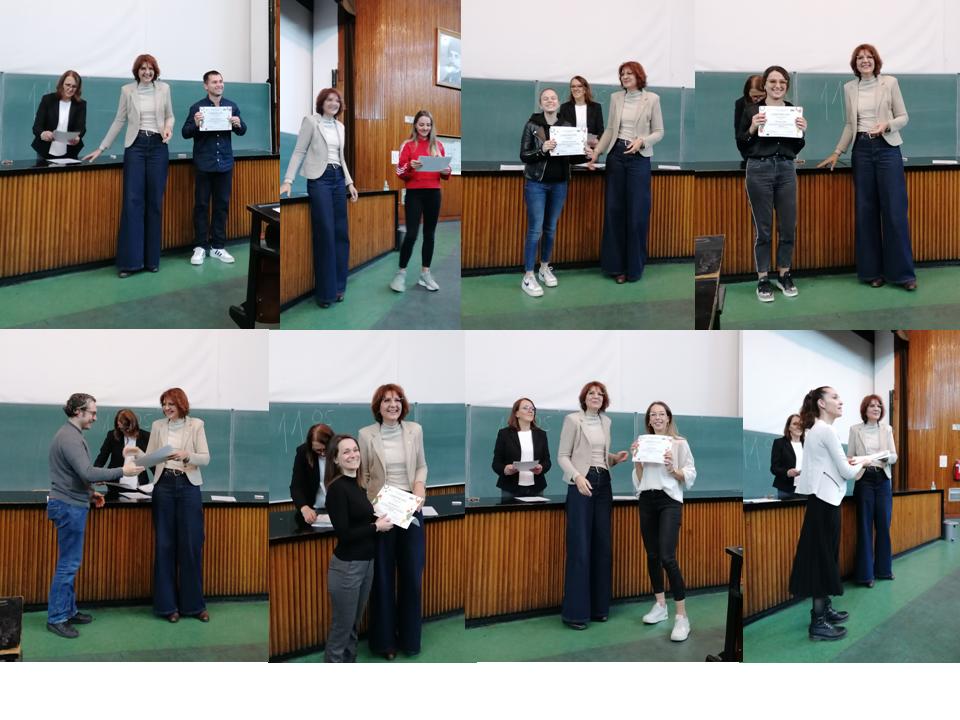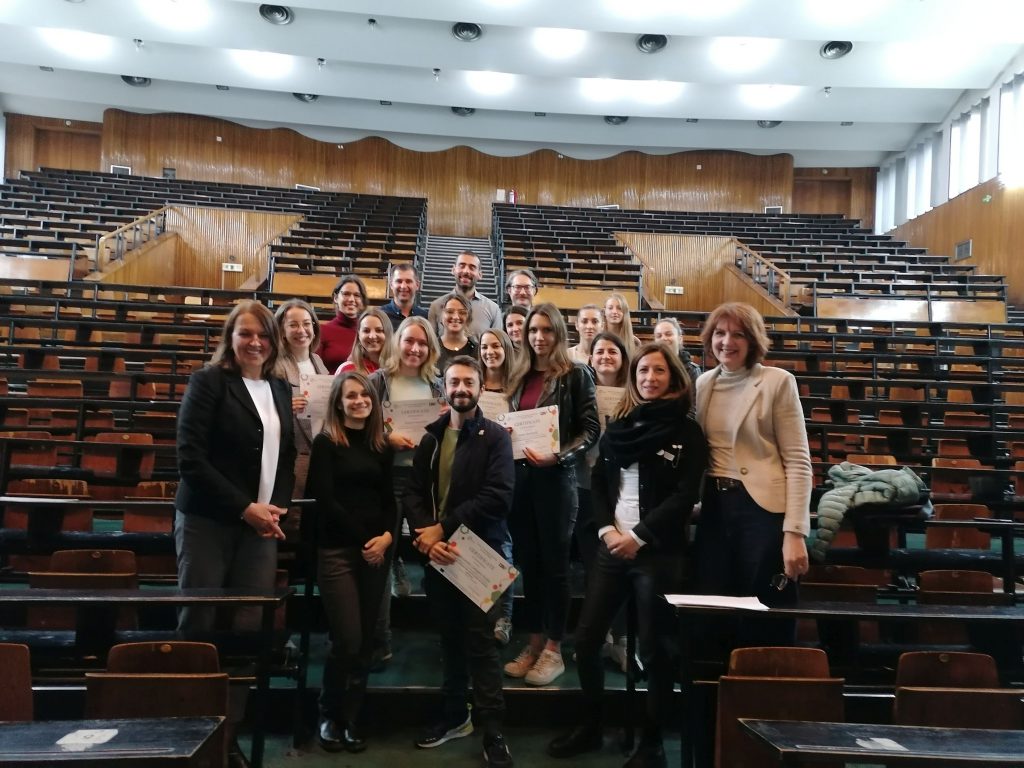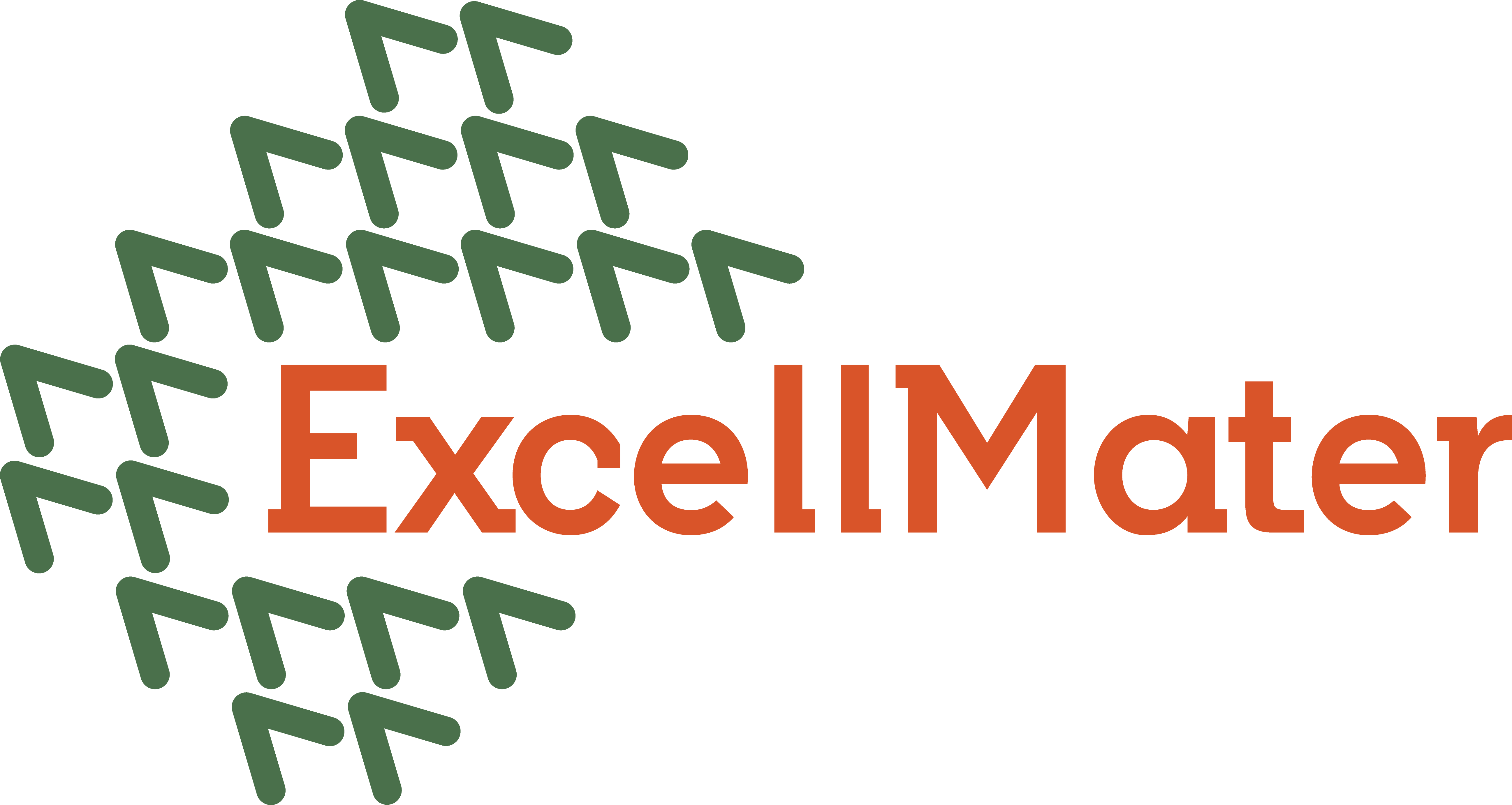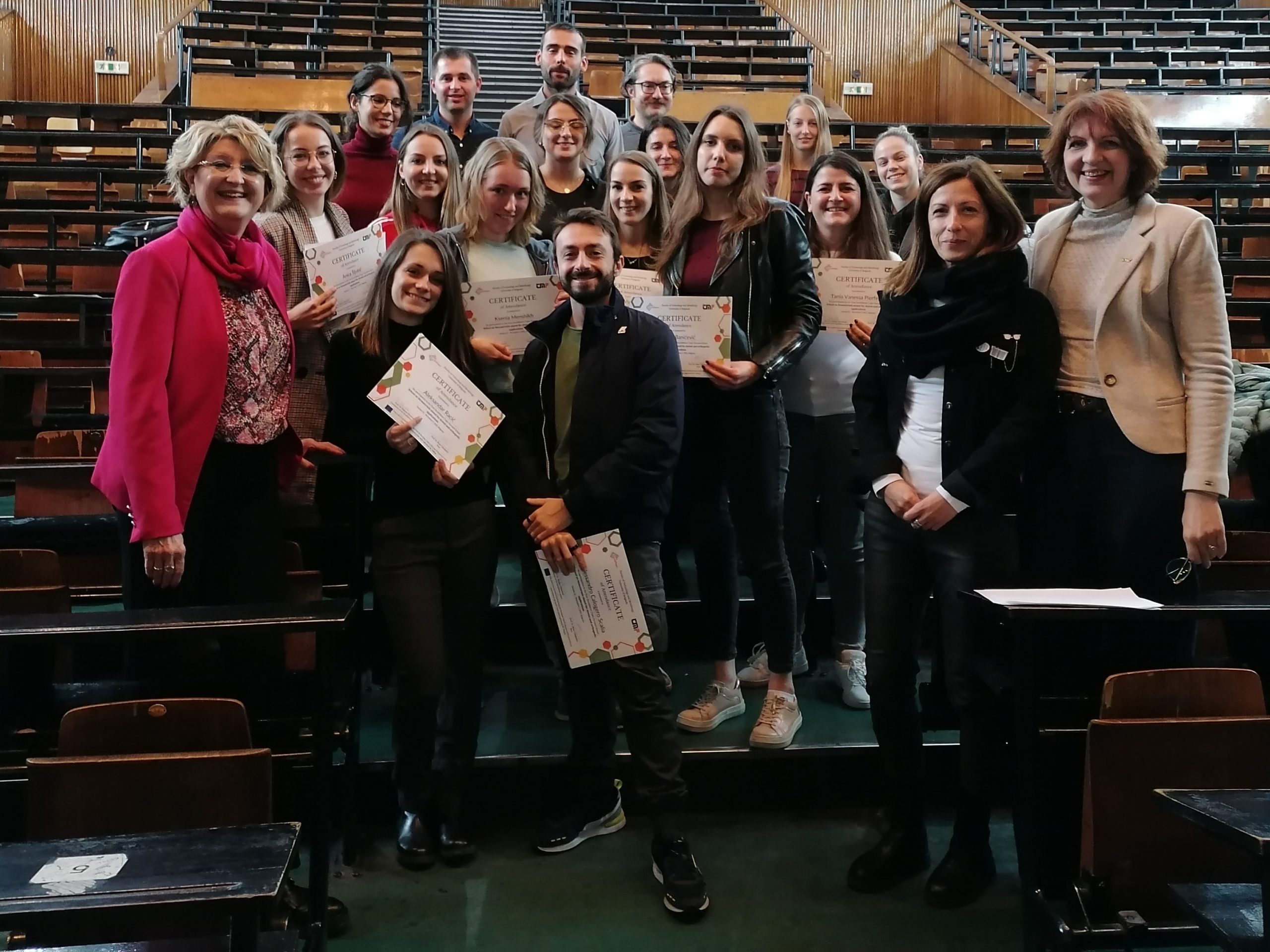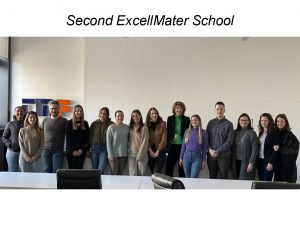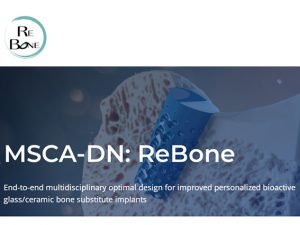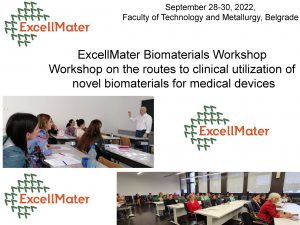First ExcellMater School
Multidisciplinarity in focus: from biomaterials to novel orthopedic and dental implants
The First ExcellMater Topic-Focused School Biomaterials aimed for dental and orthopedic applications was successfully organized at the Faculty of Technology and Metallurgy in Belgrade from October 31 to November 5, describing the development route of novel biomaterials from laboratory to the clinical practice.
The lectures covered all analyses and requirements imposed on biomaterials in order to be integrated into novel, improved orthopedic and dental implants. This is certainly a complex process, which requires multidisciplinary knowledge ranging from medical and life sciences to engineering and materials science, but including also knowledge of specific topics in legislation and ethics. Presentations portrayed different problems that scientists as well as surgeons and dentists are confronted with, such as infections, implant instabilities, movements and fractures, followed by strategies for finding solutions including biological implants, personalized implants produced by 3D printing, different implant surface modifications, and utilization of biological substances. Also, modern “omics” techniques were presented for in-depth analyses of cells and tissues that come into contact with the implant, as well as classification and different legislations, which regulate production and utilization of medical devices.
The lecturers were experts in the stated fields including specialists in orthopedic surgery and regenerative medicine from Belgrade, professors of chemical engineering and metallurgy at FTM, and professors and scientists from partner institutions, Aalto University, University of Eastern Piedmont “Amedeo Avogadro” and AO Research Institute Davos.
Still, the main aim of the school was to gather doctoral students from different disciplines. Over 20 doctoral students participated, majoring in chemical engineering, metallurgy and mechanical engineering as well as dentistry and molecular biology including 3 guest students from Italy. Along with attending the lectures, the students had the opportunity to present their research results and exchange experiences and ideas at a poster session. Also, the students were allocated to multidisciplinary teams, which were assigned to search the literature and prepare a presentation on the given topic related to the subjects addressed in the school. Prof. Michael Gasik regarded this task as a challenging in such a short period of time and compared it to project assignments given to multidisciplinary student teams at the Aalto University to prepare a process plant design with the techno-economic analysis over a course of one semester. Prof. Bojana Obradović, the school coordinator, has expressed satisfaction with the task outcomes as the students successfully presented their assigned topics indicating potentials of such an approach for efficient learning and problem solving. And, indeed, multidisciplinarity was rated by the students as a key benefit of the school along with the given possibility to be introduced to foreign lecturers and their teaching methods.
We hope that the gained knowledge and created links with the colleagues working in different fields will contribute to better associations among young scientists, strengthening of creative thinking outside of narrow specializations, and, finally, to faster creation of innovative products and devices for orthopedic and dental applications.
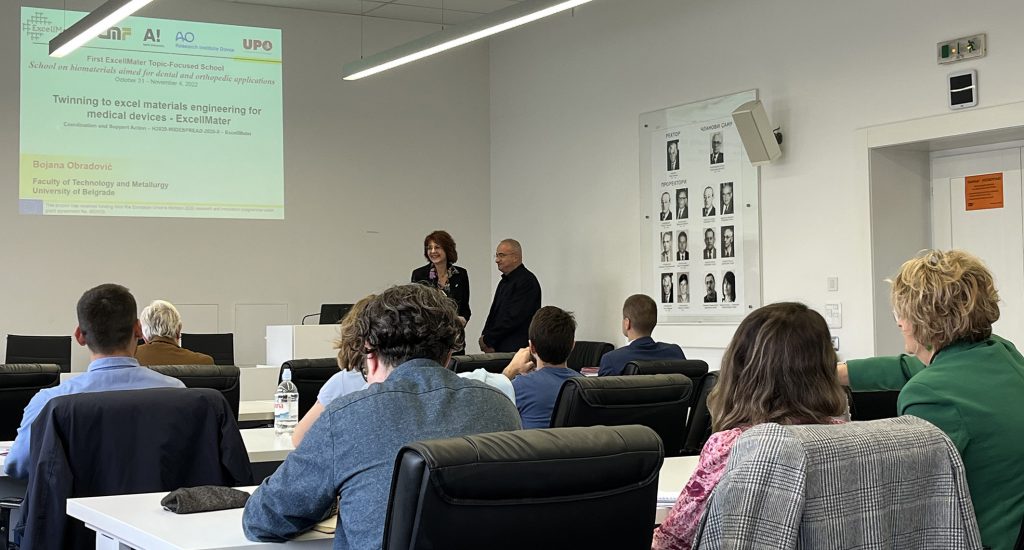
Opening ceremony: Prof. Bojana Obradović and Prof. Petar Uskoković, Dean FTM
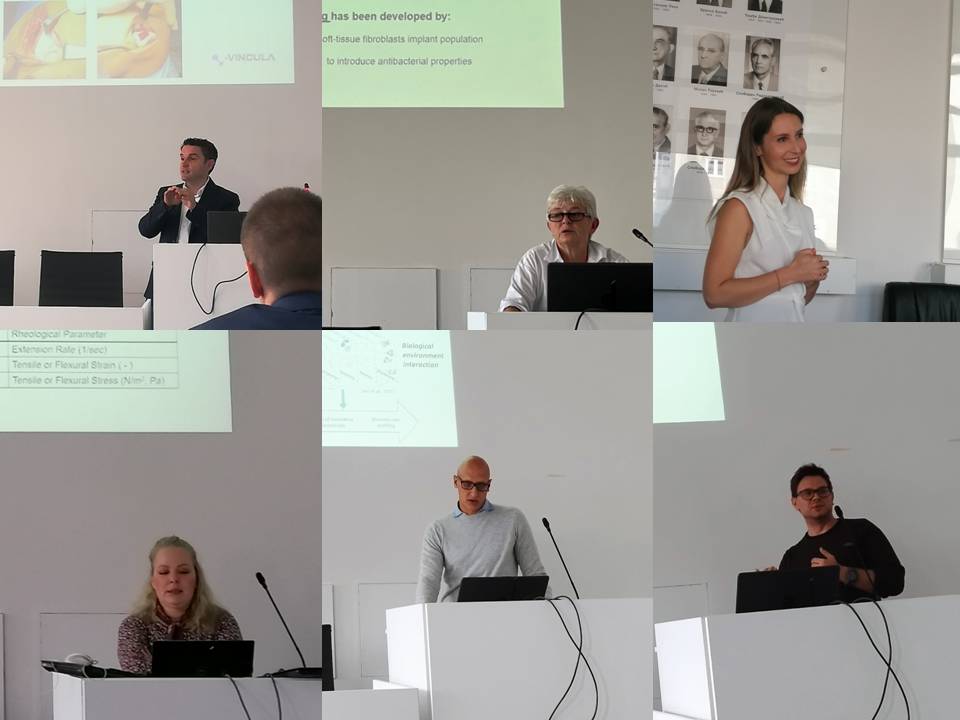
Lecturers: upper row: Dr Džihan Abazović, Prof. Lia Rimondini, Prof. Andrea Vernengo; bottom row: Dr Katarina Dimić-Mišić, Dr Marcello Manfredi, Prof. Andrea Cochis
The lectures were also interactive and followed by discussions.
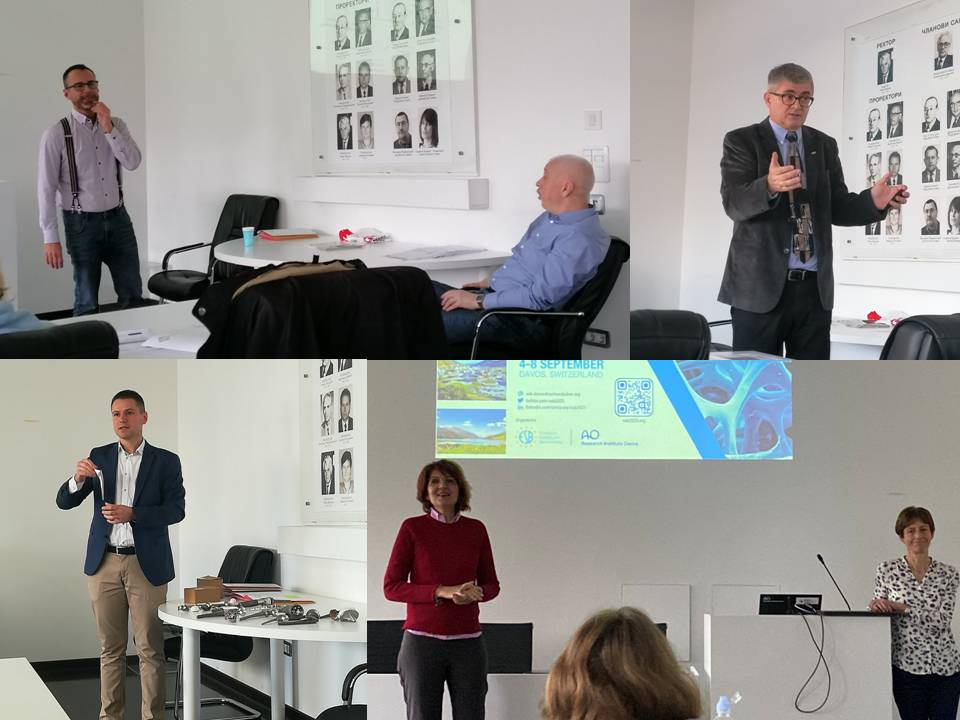
Upper row: Prof. Giuseppe Cappellano and Prof. Michael Gasik, Prof Nenad Radović; bottom row: Dr Andreja Baljozović showing orthopedic implants, Prof. Bojana Obradović and Dr Sibylle Grad
Students had the opportunity to see implants used in clinical practice:
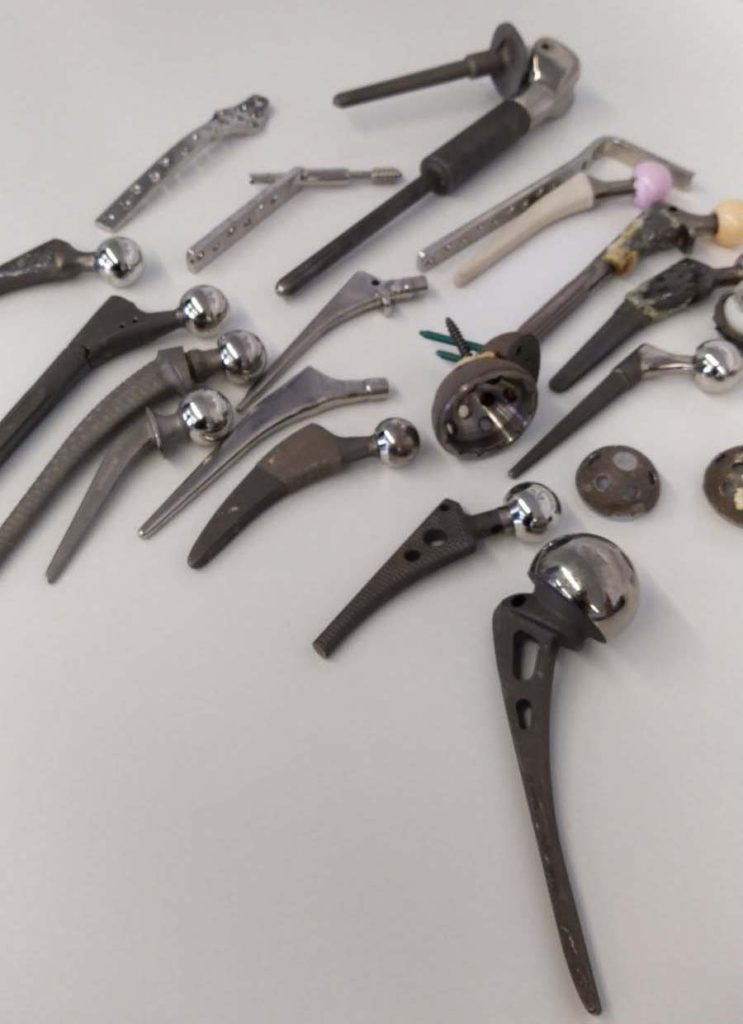
The students have presented their research at the poster session
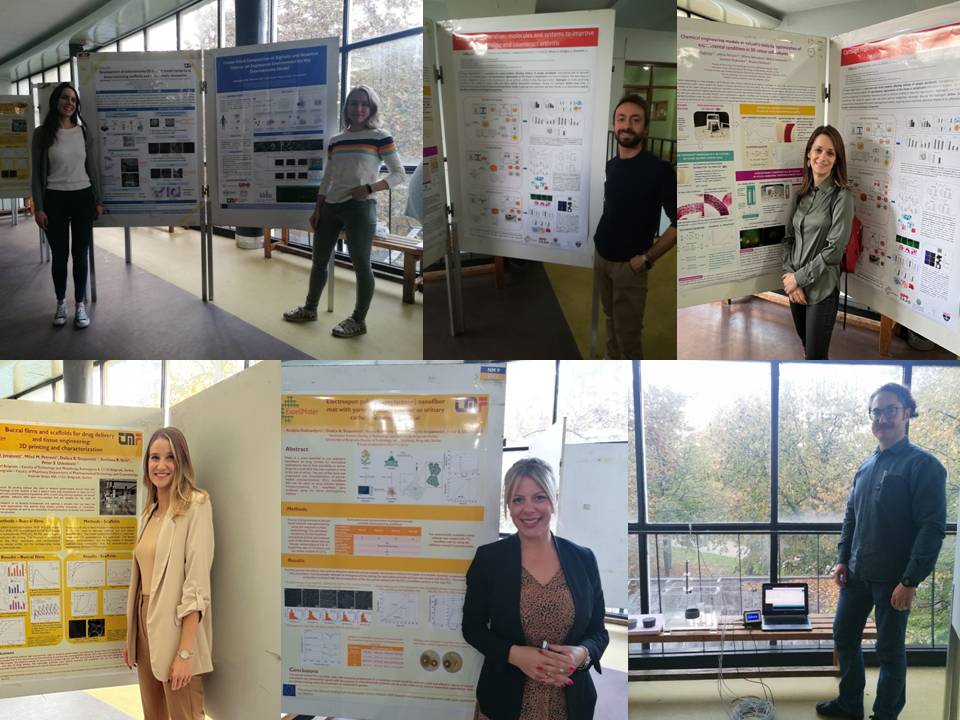
Upper row: Ivana Banićević and Ksenia Menshikh, Alesandro Calogero Scalia, Mia Milošević; bottom row: Marija Jovanović, Anđela Radisavljević, Luka Rubinjoni with his experimental prototype
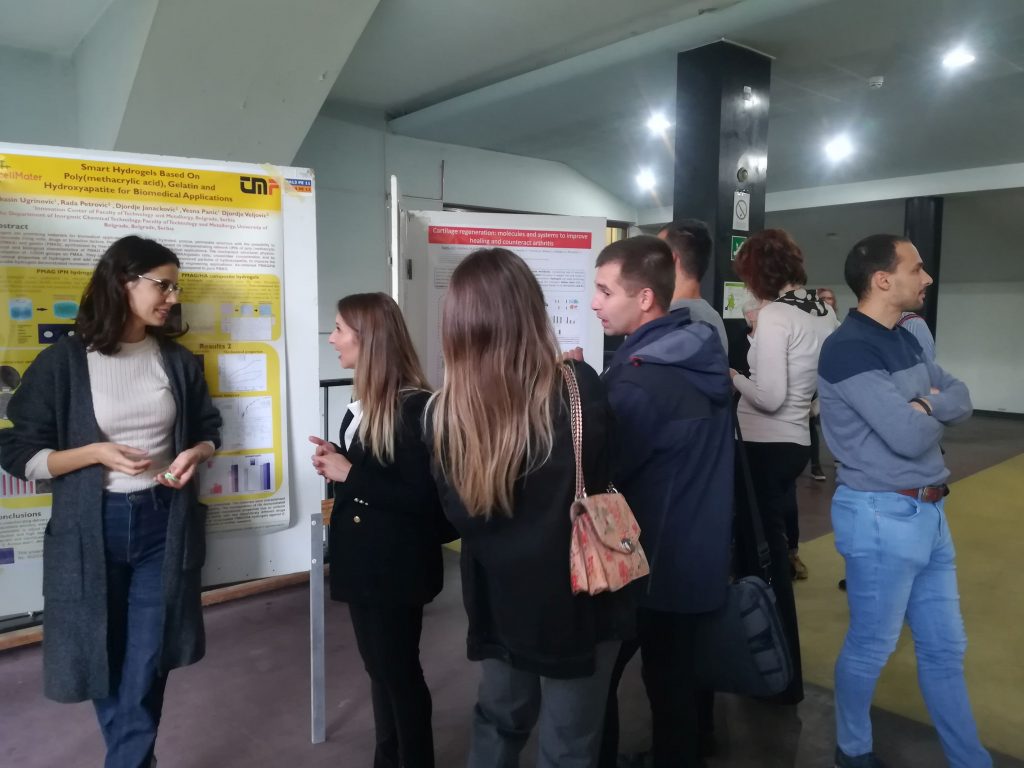
Within the school, the students were allocated to multidisciplinary teams to elaborate assigned topics and to prepare presentations
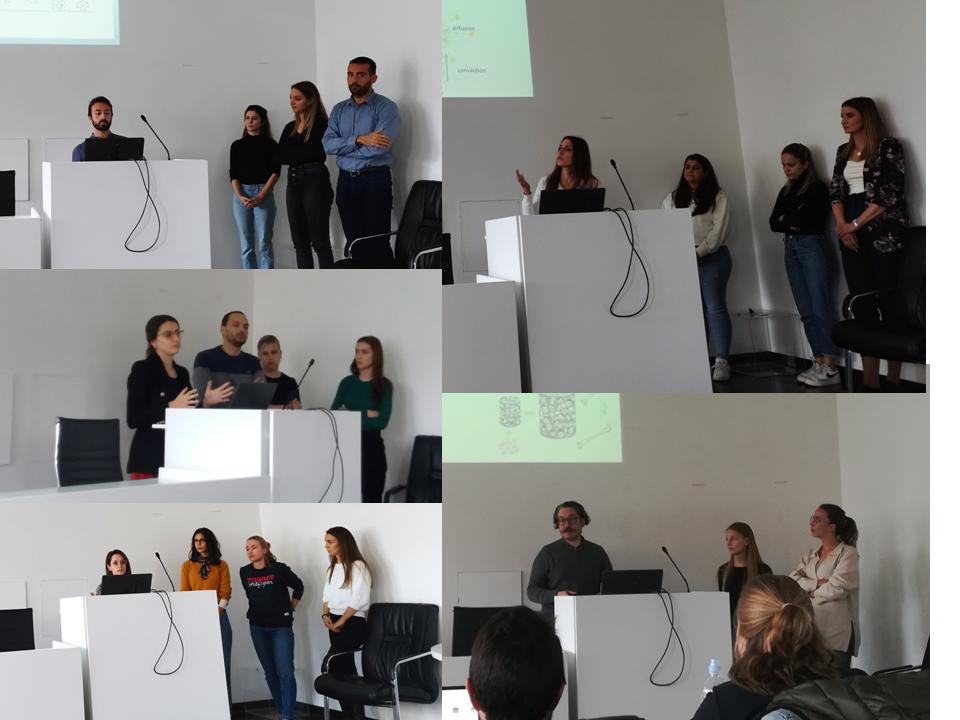
The exam was held on the last day of the school after which the students were awarded certificates on accomplishing requirements of the First Topic-Focused School equivalent to a PhD level course at the FTM (2 ECTS)
